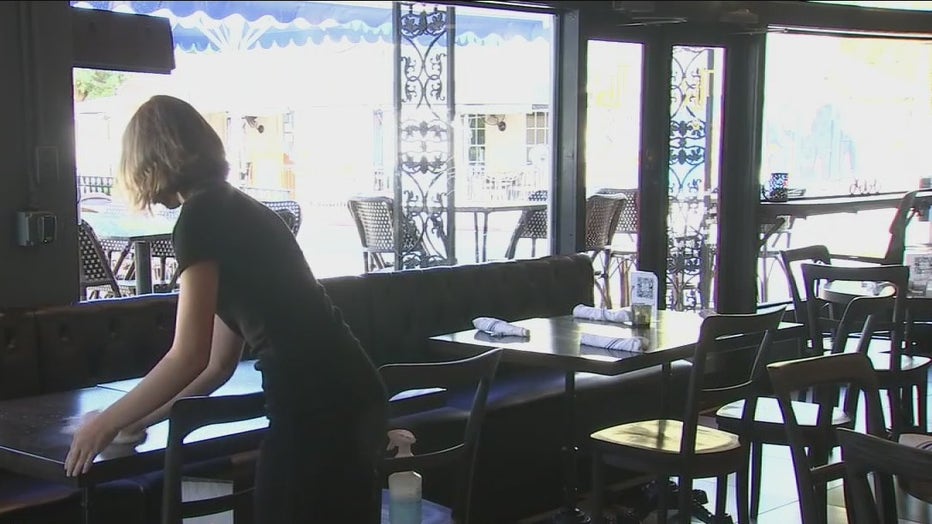Dunedin restaurant group introduces commission-based pay structure with minimum wage hike coming
DUNEDIN, Fla. - Florida's minimum wage increase is forcing the service industry to re-think its pay structure, especially for servers and bartenders.
One restaurant group in Dunedin is already implementing a new commission-based model, but it’s led to controversy. Current employees at "The Living Room" in Dunedin said when you crunch the numbers it actually does mean more money in their pockets.
"There’s not a lot of opportunity to give people what they’re worth in a lot of the situations with business and restaurants, and so we wanted to make sure that wasn’t a problem for us, and it hasn’t been," Owner Zach Feinstein said.
In order to do that, Feinstein – who also owns the Black Pearl Restaurant – implemented a new commission-based pay structure in response to Florida’s minimum wage hike. Right now, Florida’s minimum wage is $10 an hour, but will increase by a dollar each year topping out at $15 per hour in 2026.
"This is a better model. It allows me to make much better money and everyone on staff here in terms of hourly are paid well," The Living Room bartender Michael Day said.
Under the new model, the hourly rate for servers and bartenders drops from $6.98 to a dollar an hour. As Feinstein explains, that allows him to pay cooks, bussers and hosts $15 an hour.

To make up for the loss hitting servers and bartenders, all dinner bills now include a 20% service charge. A large portion of that will go to servers and bartenders as well as any additional tip left by customers.
"We wanted to look at how can we offer more pay to everybody with the least impact to our guests and with the least impact to our people, and so we did a lot of research," Feinstein said.
Feinstein hired a consulting firm to help come up with the new model. The way it's structured guarantees all employees walk out the door making $15 an hour or more.
In the midst of the changes, Feinstein said he had to let go of four employees, some of which he said had been spreading misinformation about the new model on social media.
Ultimately, Feinstein said the numbers speak for themselves.
"When you look at the data, and you look at what we're doing, you will see that this is best for everybody here," Feinstein said.


